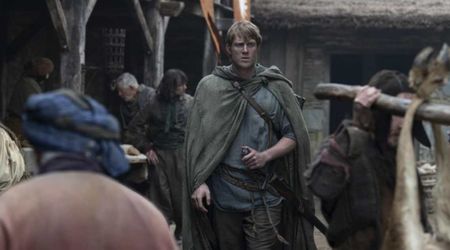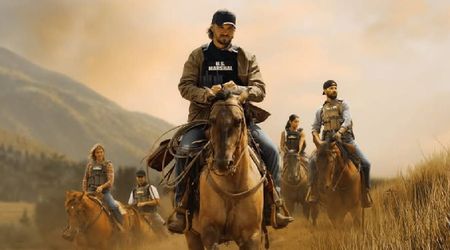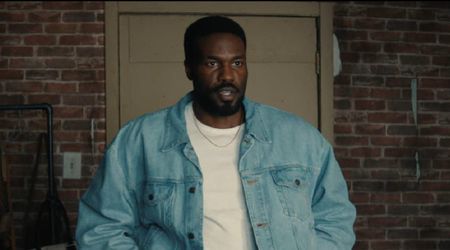'Seeing America with Megan Rapinoe': Photo of Lyndon B Johnson and Martin Luther King puts humanity over race

HBO's 30-minute talk show special, 'Seeing America with Megan Rapinoe', brought together four eminent personalities from different backgrounds for a crucial discussion on culture and the changes that the country is to foresee fueled by the movements that are calling for reform. Hosted by soccer star, Megan Rapinoe, the special also featured comedian and Netflix's 'Patriot Act' fronter, Hasan Minhaj, US Representative for New York's 14th congressional district Alexandria Ocasio-Cortez and Pulitzer prize-winning journalist, Nikole Hannah-Jones, comprise the panel. During the discussion, the speakers drew focus to an important piece of history that depicts a revolutionary change for the Black community.
The piece in question is a photograph of US President Lyndon B Johnson and Dr Martin Luther King Jr shaking hands after signing the Civil Rights Act into law. The impactful picture sheds light on the relationship between the two American leaders during that tumultuous time. President Johnson had a vision consisting of sub-goals to end poverty, lower crime rates, protect the environment and advance civil rights to create a Great Society. He signed the 1964 Civil Rights Act as a part of his vision, where he called for the official dismantling of segregation, implemented the Voting Rights Act of 1965, barred racist voting laws and enforced the 1968 Civil rights Act to end discrimination in housing sales. In addition to that, he appointed Thurgood Marshall, the first African American in the Supreme Court.

Dr Martin Luther King is an important figure in the history of the Black community and a renowned advocate of non-violence. The leader of the Civil Rights movement, he drew inspiration from his beliefs and the teaching of Mahatma Gandhi, in his quest to attain racial equality. He was driven by Gandhi's principles and pushed for non-violent resistance movements against systemic racism comprising grassroots organizing, civil disobedience and protests. Johnson and King shared a personal relationship where they talked on a regular basis, their goal for civil rights forming the subject of most of their conversations. Johnson even invited King to the White House on several occasions and even personally discussed ways to collaborate on their efforts to end racial inequality over the telephone.
Their amicable relationship driven by their common objective resulted in one reformative outcome - the Voting Rights Act of 1965. This was groundbreaking for the simple reason that it prohibited state and local governments from passing voting laws based on race and forbade discrimination through the use of poll taxes and the application of literacy rates to determine a voter's eligibility to take part in elections. The Voting Rights Act went on to be described as the most effective civil rights law to even be enacted because it enabled many African-Americans to vote for the first time. In March 1965, King received a telegram from Congressman Emanuel Celler, requesting him to testify for the proposed Voting Rights Act before Congress.

However, King did not testify because he was leading the march from Selma to Montgomery, Alabama, against the brutal denial of Blacks voting in the South. Johnson, in turn, expressed support for the marchers and also called for the support for the new voting rights bill introduced to Congress. Johnson signed the Voting Rights Act in August 1965 and many prominent civil rights activists, including King and Rosa Parks, attended the signing. Another stirring scene from the event was when Johnson handed his pen to King after signing. King's work towards his civil rights objectives was short-lived, following his assassination in 1968.
In response to his death, Johnson issued Presidential Proclamation 3839, declaring Sunday, April 7, 1968, as the day of national mourning for Dr Martin Luther King Jr. While acknowledging the country's grief for the loss of a remarkable revolutionary and leader, Johnson maintained that the fight toward civil rights would continue. Days later, President Lyndon B Johnson, signed the Civil Rights Act of 1968 into law making it the last major act in his and King's combined efforts to fight against racial inequality in the US.










